13 Nov2019
By JTE Insider

Read the latest JTE Insider blog interview by the Journal of Teacher Education (JTE) editorial team. This blog is available to the public, and AACTE members have free access to the articles in the JTE online archives—just log in with your AACTE profile.
In this interview, The JTE editorial team shares insights from the Sue C. Kimmel and Danielle E. Hartsfield, co-authors of the article “It Was . . . the Word ‘Scrotum’ on the First Page”: Educators’ Perspectives of Controversial Literature, published in the September/October 2019 issues of the Journal of Teacher Education.
What motivated you to pursue this particular research topic?
Sue: We both teach children’s literature, and we were interested in how our students who were pre-service educators reacted to controversy in children’s literature. We believe in the power of literature to promote empathy and positive inquiry into social issues. We were concerned with the willingness of pre-service educators to avoid “controversy” in the classroom and library with little critical thought about what it meant to withhold quality literature about difficult topics from their students.
12 Nov2019
By Katrina Norfleet
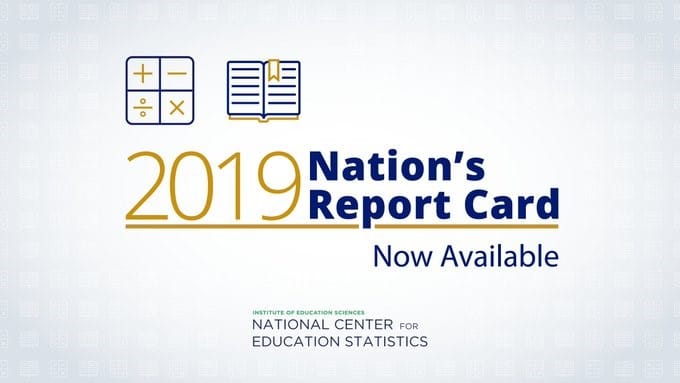 The recent release of the 2019 Nation’s Report Cards for mathematics and reading in grades 4 and 8 illustrates a growing disparity in achievement between the highest and lowest achieving students. The results show the divergence is happening across the nation, across states, and for student groups by race/ethnicity and socioeconomic status.
The recent release of the 2019 Nation’s Report Cards for mathematics and reading in grades 4 and 8 illustrates a growing disparity in achievement between the highest and lowest achieving students. The results show the divergence is happening across the nation, across states, and for student groups by race/ethnicity and socioeconomic status.
The National Assessment of Educational Progress (NAEP), widely known as the Nation’s Report Card, provides data from the nation, states/jurisdictions, and urban school districts that volunteer to participate in the Trial Urban District Assessment (TUDA). Approximately 296,900 fourth- and eighth-grade students across the nation participated in the 2019 mathematics assessment and nearly 294,000 fourth- and eighth-grade students across the nation participated in the 2019 reading assessment. Results are available for the 50 states, the District of Columbia, and Department of Defense schools, as well as for the 27 participating large urban districts.
07 Nov2019
By Michele Back
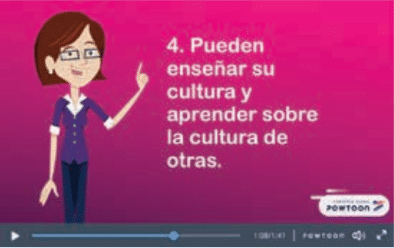 This article originally appeared in the Language Educator and is reprinted with permission from the American Council on the Teaching of Foreign Languages.
This article originally appeared in the Language Educator and is reprinted with permission from the American Council on the Teaching of Foreign Languages.
The ability to collaborate and advocate beyond the classroom and across stakeholders, from department chairs to administrators to parents, is a crucial teacher leadership skill. Moreover, the critical shortage of world language teachers, combined with the diminishing number of U.S. students taking world language courses, means that teacher candidates in this content area must be strong advocates for their own profession from the moment they step into the classroom.
During my time as the world language advisor and methods instructor at the University of Connecticut’s Neag School of Education, I have become increasingly preoccupied with the scarcity of world language teacher candidates, especially as compared to other content areas. I have wondered how our current candidates could apply their emerging leadership roles in ways that would encourage K–12 students to both continue learning languages and to also consider careers in world language education.
07 Nov2019
By California State University Monterey Bay
 California State University Monterey Bay (CSUMB) has been selected to receive funding under the U.S. Department of Education’s Teacher Quality Partnership (TQP) program in the amount of $4,849,320; $2.2M of which will go directly to student scholarships.
California State University Monterey Bay (CSUMB) has been selected to receive funding under the U.S. Department of Education’s Teacher Quality Partnership (TQP) program in the amount of $4,849,320; $2.2M of which will go directly to student scholarships.
The award, expected to span over a total of five years, will also help fund a project entitled Preparing Observational Practitioners through Partnerships Yearlong (POPPY) and support CSUMB partnerships with eight school districts across Monterey County, further advancing the “grow your own” model of teacher preparation.
25 Oct2019
By Beth Day
The U.S. Department of Education has awarded the Southern Regional Education Board a $5.3 million, 5-year Teacher Quality Partnership grant to create a residency-based teacher preparation program with Georgia College & State University.
The Georgia Residency for Educating Amazing Teachers will recruit undergraduate STEM majors who aspire to become middle grades math and science teachers. They will complete an online Master of Arts in Teaching during a year-long residency—practice teaching supervised by a mentor-teacher— in a high-needs middle grades classroom.
Rural school districts served by the Oconee Regional Education Service Agency in central Georgia will be the primary partners for hosting the residents in classrooms. SREB and Georgia College will support mentor-teachers and residents with coaching and specialized training on topics like project-based learning.
Over the course of the grant, 60 students will become fully certified to teach middle grades math or science in Georgia; some will also complete a computer science endorsement.
The newly certified teachers will then teach in a local school for two years with support from mentor-teachers and SREB instructional coaches. Participants agree to teach in their assigned schools for one year beyond this two-year induction period.
11 Oct2019
By Annemarie Mountz

A team of Penn State College of Education faculty led by P. Karen Murphy has won a five-year, $1.98 million grant from the National Science Foundation (NSF) to improve the preparation of undergraduate preservice elementary teachers.
Murphy, distinguished professor of education (educational psychology), is the principal investigator (PI) on the study. She is joined by co-PIs Gwendolyn Lloyd, the Henry J. Hermanowicz Professor of Teacher Education and professor of education (mathematics education); Amy Voss Farris, assistant professor of education (science education); and Rachel Wolkenhauer, assistant professor of education (curriculum and supervision).
With support from the NSF Improving Undergraduate STEM Education Program: Education and Human Resources, this project aims to serve the national interest by investigating whether teaching preservice elementary teachers how to use discussion-based pedagogy improves the quality of mathematics instruction in their classrooms. Specifically, the researchers will adapt Quality Talk (QT), a small-group, teacher-facilitated discussion approach, for use by teacher educators in STEM methods courses and classroom-based field experiences for future elementary teachers.
01 Jul2019
By Joanna Masingila
The journal of the New York Association of Colleges for Teacher Education, 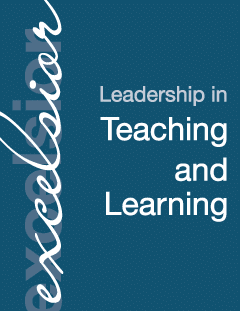 , has successfully navigated from a print journal with a subscription price to an online, open access journal that is free. Our new co-editors, Christine Ashby and Julia White have just published their first issue. The journal welcomes submissions from all interested teacher and leader educators.
, has successfully navigated from a print journal with a subscription price to an online, open access journal that is free. Our new co-editors, Christine Ashby and Julia White have just published their first issue. The journal welcomes submissions from all interested teacher and leader educators.
Excelsior is the key outlet for publishing work in teacher preparation for the New York Association of Colleges for Teacher Education. For over a decade, it has reported research across content disciplines, research methodologies, theoretical perspectives, and current issues in the field.
In addition to presenting authors the opportunity to publish in an open access journal, we want to increase the diversity of manuscript topics, including the diversity of research methods, and extend the range of researchers and practitioners publishing in Excelsior. To meet this goal we will routinely solicit submissions from:
27 Jun2019
By North Carolina State College of Education

The NC State College of Education and The Innovation Project have selected 19 N.C. High School Mathematics Master Teaching Fellows.
Supported by a five-year, $1.8 million grant from the National Science Foundation, this program will prepare, support and retain master teachers of mathematics from high-needs school districts across the state of North Carolina, and is a partnership between the NC State College of Education, The Innovation Project and seven school districts where the 19 fellows come from:
21 May2019
By Brandon R.T. Frost
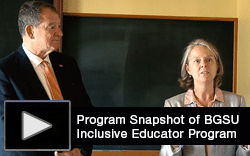 AACTE is excited to share the latest videos of its Research-to-Practice Spotlight Series on Special Education this spring. The video interviews feature faculty, students, and school district leaders who work with Portland State University (Portland, OR) and Bowling Green State University (Bowling Green, OH) to implement extensive clinical preparation for teacher candidates pursuing careers in general and special education. The link to view the video series is now available!
AACTE is excited to share the latest videos of its Research-to-Practice Spotlight Series on Special Education this spring. The video interviews feature faculty, students, and school district leaders who work with Portland State University (Portland, OR) and Bowling Green State University (Bowling Green, OH) to implement extensive clinical preparation for teacher candidates pursuing careers in general and special education. The link to view the video series is now available!
In my recent blog post, I shared a brief introduction to the new Research-to-Practice Spotlight Series. The videos highlight exemplary practices of the two teacher preparation programs for ensuring their candidates are ready to work with all students, including students with disabilities. Though different in many programmatic elements to address their local contexts, each university designed their programs to equip all teachers with the skills necessary to instruct the diverse needs of their student population.
The Master’s Program in Secondary Dual Education at Portland State University features dual certification in both general and special education at the secondary level. Entrants to the program come with an undergraduate degree in a content area and engage in two years of extensive and increasing involvement in clinical settings in secondary schools. Principals consider the program transformative in terms of the skills graduates bring to their classrooms.
11 Apr2019
By Katrina Norfleet
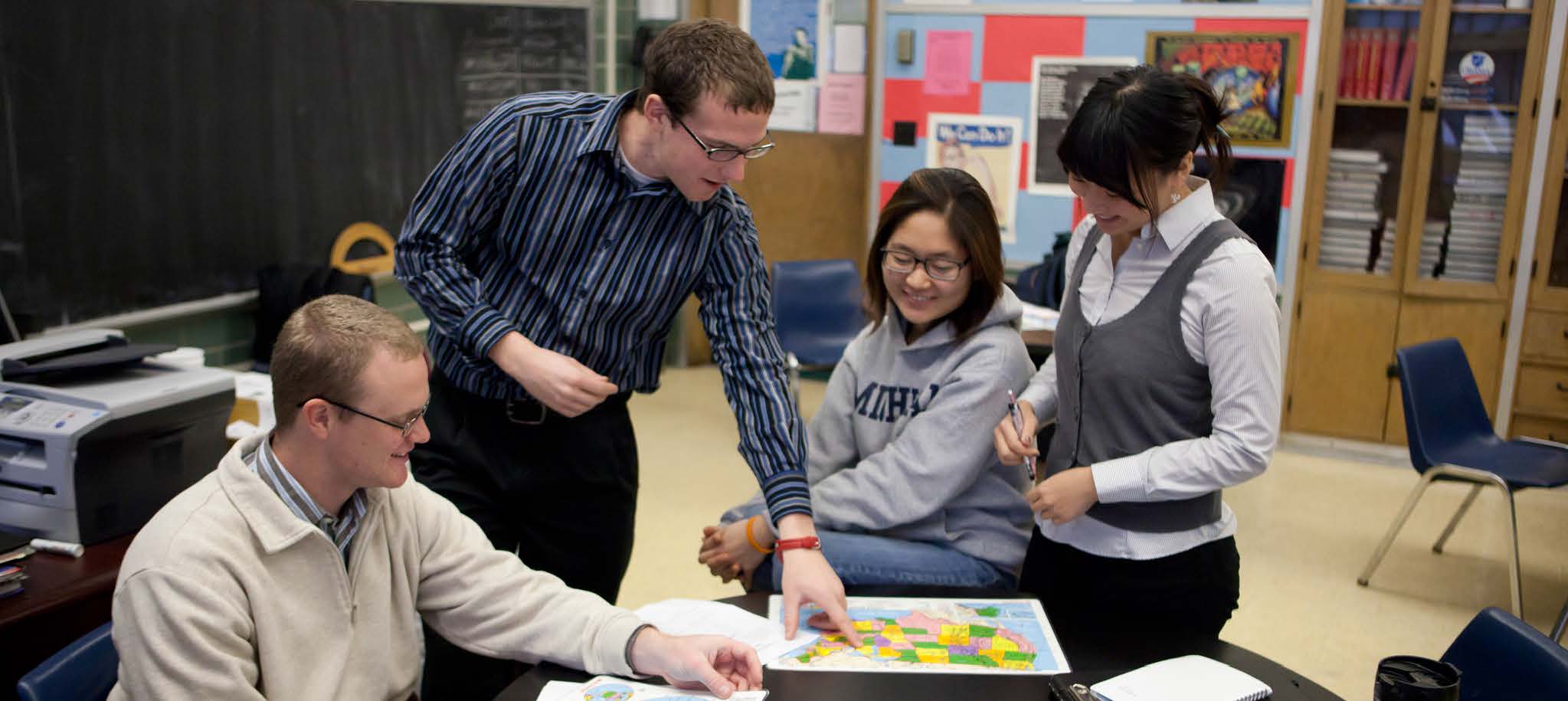
TeachingWorks at the University of Michigan is presenting its second annual Practice-Based Teacher Education Workshop, an opportunity for teacher educators to examine and try out practice-based teacher education pedagogies. The workshop, will take place on July 8-10, 2019 at the University of Michigan School of Education, in Ann Arbor, Michigan.
The presentations will include artifacts of practice such as videos and transcripts to create more time for teacher educators to practice teacher education pedagogies.
21 Mar2019
By Ward Cummings
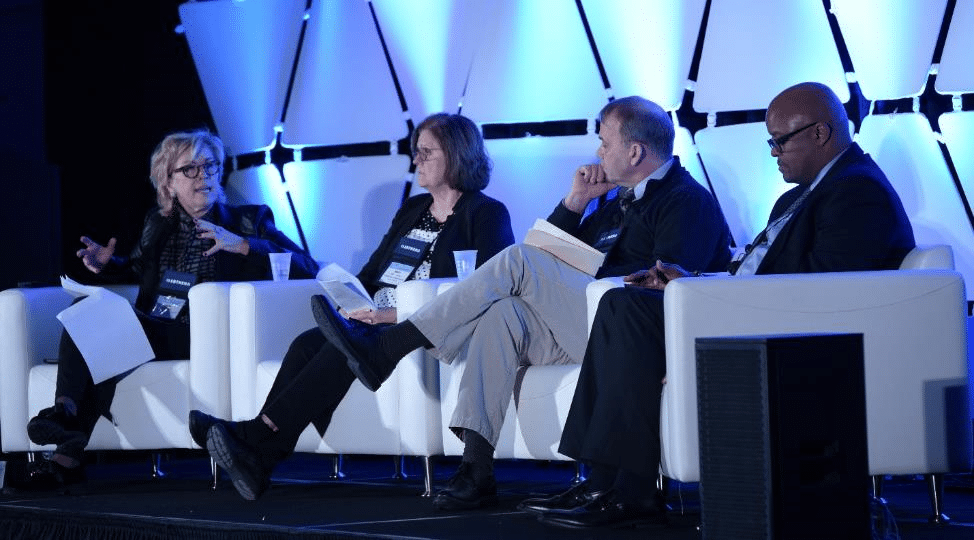
During the AACTE 2019 Annual Meeting, panelists for the Deeper Dive session, “Innovations to Address Today’s Workforce Needs” examined inclusive education preparation and strategies to address the national teacher shortage. The session highlighted AACTE’s partnership with the Collaboration for Effective Educator Development, Accountability, and Reform (CEEDAR) Center at the University of Florida and its federal supporters.
AACTE Consultant Jane West, who leads the Association’s work with CEEDAR, moderated a discussion with panelists Mary Murphy and Mark Seals (Bowling Green State University) and Marvin Lynn (Portland State University) on best practices at Bowling Green’s undergraduate teaching program and Portland State’s master’s program.
11 Dec2018
By Katrina Norfleet
The University of Idaho (UI) has received a nearly $1 million grant from the U.S Department of Education to support the second cohort of its Indigenous Knowledge for Effective Education Program (IKEEP), which prepares and certifies culturally responsive Indigenous teachers to meet the unique needs of Native American students in K-12 schools. The first IKEEP cohort began in 2016 with nine students. The new grant will allow an additional eight scholars to begin training in the summer of 2019.
“I am so very pleased that the University of Idaho’s College of Education, Health & Human Sciences (CEHHS) is home to the IKEEP program,” said CEHHS Dean Ali Carr-Chellman. “This U.S. Department of Education grant will help some of our highest needs schools in the state of Idaho to have not only highly qualified teachers, but teachers with a clear sense of culturally responsive curricular approaches. I am deeply impressed by the dedication and perseverance of Drs. Vanessa Anthony-Stevens and Yolanda Bisbee in their pursuit of the IKEEP program for the betterment of all of Idaho.”
Anthony-Stevens and Bisbee, along with Christine Meyer and Joyce McFarland recently shared insights into the IKEEP model in the following Q&A:
06 Nov2018
By Katrina Norfleet
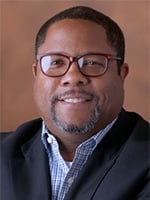
AACTE member H. Richard (Rich) Milner, IV, a leading scholar of urban education and teacher education, recently delivered the 15th Annual Brown Lecture in Education Research sponsored by the American Educational Research Association. The Annual Brown Lecture in Education Research is designed to feature the important role of research in advancing understanding of equality and equity in education. Each year, a distinguished scholar notable for producing significant research related to equality in education is invited to give a public lecture in Washington, D.C.
Milner is currently the Cornelius Vanderbilt Endowed Chair of Education and professor of education in the Department of Teaching and Learning at Vanderbilt University. His lecture, “Disrupting Punitive Practices and Policies: Rac(e)ing Back to Teaching, Teacher Preparation, and Brown,” focused on research on the practices and policies that implicitly or overtly punish rather than support the development of students of color.
02 Oct2018
By Jerrica Thurman

Southern New Hampshire University (SNHU) in Manchester launched its new clinical master’s degree program during the 2018-19 academic year. The program offers dual certification in elementary and special education or early childhood and early childhood special education. It is designed to prepare teacher candidates for certification and to ensure that new educators have the required skills, competencies, knowledge, and dispositions specifically needed to support the development and learning of students in elementary grades (K-8) and general special education (K-12).
“It’s an accelerated 15-month clinical program that enables teacher candidates to work clinically with students during 11 of those months,” said Mary Ford, Interim Dean in the School of Education at SNHU. “They are [working] in supervised clinical experiences learning the craft and skill of teaching as well as monitoring the learning progress of their K-12 students.”
07 Sep2018
By Jerrica Thurman

Check out the September/October 2018 issue of the Journal of Teacher Education (JTE). It is now available online and hitting desks around the country. See what Volume 69 Number 4 has to offer!








 The recent release of the 2019 Nation’s Report Cards for mathematics and reading in grades 4 and 8 illustrates a growing disparity in achievement between the highest and lowest achieving students. The results show the divergence is happening across the nation, across states, and for student groups by race/ethnicity and socioeconomic status.
The recent release of the 2019 Nation’s Report Cards for mathematics and reading in grades 4 and 8 illustrates a growing disparity in achievement between the highest and lowest achieving students. The results show the divergence is happening across the nation, across states, and for student groups by race/ethnicity and socioeconomic status. This article originally appeared in the
This article originally appeared in the  California State University Monterey Bay (CSUMB) has been selected to receive funding under the U.S. Department of Education’s Teacher Quality Partnership (TQP) program in the amount of $4,849,320; $2.2M of which will go directly to student scholarships.
California State University Monterey Bay (CSUMB) has been selected to receive funding under the U.S. Department of Education’s Teacher Quality Partnership (TQP) program in the amount of $4,849,320; $2.2M of which will go directly to student scholarships.







